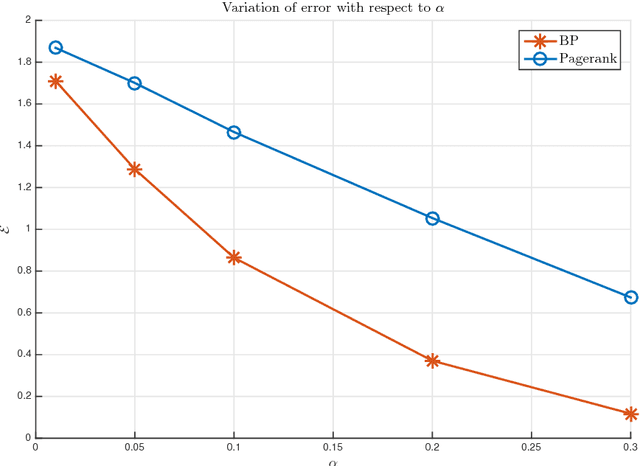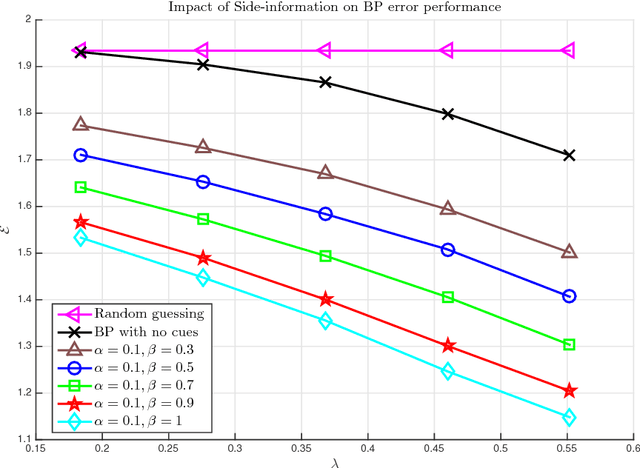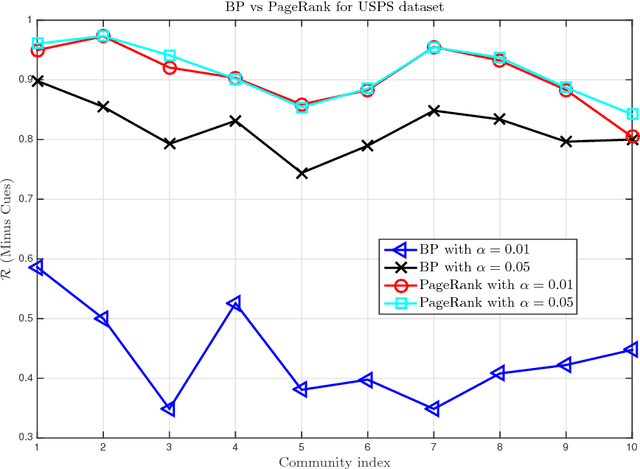The Power of Side-information in Subgraph Detection
Paper and Code
Mar 06, 2017



In this work, we tackle the problem of hidden community detection. We consider Belief Propagation (BP) applied to the problem of detecting a hidden Erd\H{o}s-R\'enyi (ER) graph embedded in a larger and sparser ER graph, in the presence of side-information. We derive two related algorithms based on BP to perform subgraph detection in the presence of two kinds of side-information. The first variant of side-information consists of a set of nodes, called cues, known to be from the subgraph. The second variant of side-information consists of a set of nodes that are cues with a given probability. It was shown in past works that BP without side-information fails to detect the subgraph correctly when an effective signal-to-noise ratio (SNR) parameter falls below a threshold. In contrast, in the presence of non-trivial side-information, we show that the BP algorithm achieves asymptotically zero error for any value of the SNR parameter. We validate our results through simulations on synthetic datasets as well as on a few real world networks.
 Add to Chrome
Add to Chrome Add to Firefox
Add to Firefox Add to Edge
Add to Edge